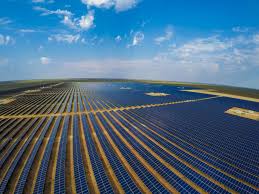Generation

South Africa’s renewable energy drive remains strong as businesses seek resilient energy strategies

South African businesses are increasingly seeking independence from Eskom due to its reliability issues, and the steady, multi-digit annual tariff increases the utility is imposing. While cost savings are a primary concern, power stability is equally critical, as remaining dependent on Eskom's ageing coal fleet and underperforming mega power stations like Medupi and Kusile is no longer viable.
These factors, combined with the global shift to significantly reducing emissions and trying to achieve Net Zero targets, and the ability to provide energy that is clean, available, and affordable, leading the clean and just energy transition has made renewable energy, particularly solar and wind with battery storage the logical path forward.
South Africa has made significant strides in integrating renewables through the Renewable Energy Independent Power Producer Procurement Programme, designed to bring renewable energy onto the grid at the lowest possible cost for consumers.
However, progress has been delayed due to several well-documented challenges, including policy stagnation and leadership decisions. Consequently, the country experienced severe electricity shortages, culminating in stage six load shedding.
Despite these setbacks, the drive towards energy independence through renewables remains strong. Businesses must prioritise resilient energy strategies, leveraging solar and wind solutions to secure long-term sustainability and operational stability. This is clearly demonstrated by recent Commercial and Industrial (C&I) projects reaching Financial Close, some of the largest projects in Southern Africa to date.
As iTOO Renew Risk we recently provided the Insurance solution to Red Rocket’s largest wind farm Overberg, 380MW. Once fully operational, Overberg Wind Farm will be South Africa’s largest privately developed single wind farm, significantly contributing to the country’s energy security. The project is expected to cut Richards Bay Minerals (RBM’s) annual greenhouse gas (GHG) emissions by approximately 30%, equivalent to 0.7 million tonnes of CO₂e.












